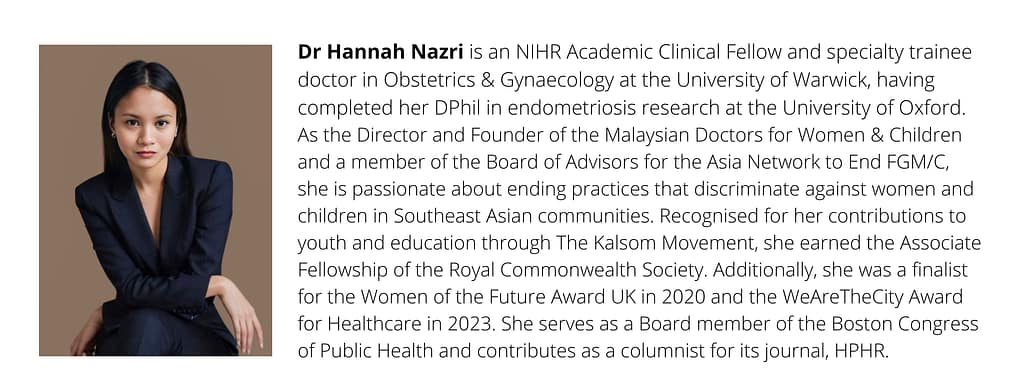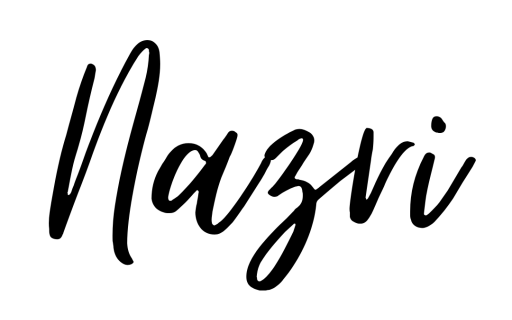Photo by David Gavi on Unsplash
Yesterday, I had attended a workshop on building a sustainable medical career by Professor Tim Hoff as part of the Management in Medicine programme at Green Templeton College. It was lovely to come back to Green Templeton College, as I did my MSc Clinical Embryology some years ago at this college.
This workshop focuses on fostering a sustainable career ethos, exploring what individuals can achieve despite challenging work environments while considering intrinsic and extrinsic motivations, individual personality types (Myers-Briggs) and defensive routines. Predictably, the topic of burnout came into the picture. When I had undergone my own burnout experience, it was extremely isolating and difficult to reconcile with as a perfectionist. You always have this gnawing feeling that you were a failure for experiencing burnout, though a quick Google search will pull out numerous literature on doctors experiencing burnout globally.
Burnout, as defined by the World Health Organization (WHO), is a syndrome resulting from chronic workplace stress that has not been successfully managed. It is characterised by three primary dimensions: feelings of energy depletion or exhaustion, increased mental distance from one’s job or feelings of negativism and cynicism related to one’s job, and a reduced sense of professional efficacy. This condition is recognised as an “occupational phenomenon” in the WHO’s International Classification of Diseases (ICD-11).
Individuals suffering from burnout often feel overwhelmed, emotionally depleted, and incapable of meeting constant demands. This state can manifest in various ways, including chronic fatigue, insomnia, frequent headaches, and a weakened immune system. Emotionally, it can lead to feelings of helplessness, detachment, loss of motivation, and a pervasive sense of cynicism. Behaviourally, burnout can result in diminished performance and productivity, withdrawal from responsibilities, and a tendency to isolate oneself from others.
Not surprisingly, while also acknowledging the limitations of the Myers-Briggs personality, following the “Great Burnout”, I am now an ENTJ-A, an extrovert of the highest form who wants to charge through life with logical precision and no time for emotive reasoning (Ah well, having “unconstrained rationalism” always comes back to me! By the way, you can take your test here). It is understandable that the challenging circumstances of the past decade have shaped my personality differently, leading me to prefer introversion over the extroversion I exhibited in the past year following my burnout. It is quite striking when even my family agrees with the ENTJ-A personality, as a bunch of people who knew me before, during, and after my burnout/ depression. But I digress.
During my DPhil (or a PhD) at the University of Oxford, I faced numerous potential career paths, often feeling the pull to pursue them all, including leaving medicine and going for management consultancy jobs! However, after years pursuing a DPhil, I realised my deep-seated desire to reconcile with my identity as a medical doctor. At that time, I did not know whether this feeling I had inside of wanting to pursue specialty training was to do with the deep imprinting during medical school that I must continue to become a medical doctor, and so the next logical step was to try it out.
Financial pressures and various challenges necessitated immediate entry into the job market upon completing my DPhil, without respite. I accepted the first available specialty trainee position, which required relocating to the North, while also writing my DPhil thesis. Balancing thesis writing with shift work led to burnout. Then, taking up my dream role as an NIHR Academic Clinical Fellow involved moving to a new location and starting a new job without any support network, which culminated in further burnout. Additionally, I had struggled to envision a future beyond this Fellowship due to the pull of wanting to do everything. I have always been the girl who wants to do everything and everything…leading to burnout.
Whenever you find yourself at the end of the tether:
- You need to remember to take care of yourself firstly before others. I do not remember where I have read this; but this beautifully surmises my point: “You cannot be everything to everyone, and nothing to yourself”. I do not think this is in conflict with the Hippocratic Oath. As medical professionals, we have a legal and moral duty towards our patients and therefore it is paramount that we prioritise our own physical and mental health to deliver the best care possible. Therefore you need to find that 5-30 minutes in your busy shift for food and comfort breaks. Being autistic with women’s health as my special interest and a highly driven individual means that I could very easily work into late hours in the night in the past without any meal breaks or doing anything else, and I had done that for decades of my life to my own detriment. It is vital to have non-negotiable elements in your weekly routine to nourish and rejuvenate your soul. Think carefully about what or who should be in your mental health toolkit. During my burnout and its aftermath, I realised how important it is to take every step to prevent this from ever occurring again, which also culminated to my official diagnosis of autism and a thorough reflection of understanding what this means to me. This requires substantial effort and a receptive mindset to absorb the wisdom gained from those with neurodiversity and to embrace personal growth.
- You need to cut out “bare minimum people”. I first heard this term yesterday while catching up with some friends at College (how refreshing it is to meet like-minded people!). I have realised that throughout the years that I have been doing myself a disservice by entertaining “bare minimum people”. Of course, many things I did were done out of kindness and I did not expect returns but I am not Prophet Muhammad, Jesus, Buddha – I am just human with desires, needs and feelings of my own. No one should feel like they have been taken advantage of, even if it was unintentional. I have found greater happiness by freeing myself from the mental stress of caring for others who do not deserve an ounce of my time and energy. All of us deserve people who genuinely care about us, who choose their words thoughtfully, demonstrate patience, and clearly not playing mind games. Medicine is a hard job. It is not just the long hours, but the physical and emotional toll that comes with it. No doctor should have to endure the added stress of dealing with individuals who offer only the bare minimum outside of work – you get paid zero to “mother”or “doctor” these people. And yet, as an individual, I am not even asking for the moon and the stars. My terms are simple: show appreciation for me, my job, my interests, and do not make me feel small. While I am not fond of labels, it is refreshing to read that ENTJ-A personalities do not prefer friendships that happen out of circumstance or routine habits. For me, meaningful friendships involve engaging discussions about personal development, a shared passion for learning, and mutual efforts towards self-improvement. It can be challenging to keep up with such individuals as they are always engaged in important pursuits. Nonetheless, life is too short to focus on the wrong people. Based on my experiences, I would rather spend quality time alone than in the company of those who do not align with my values. Do not be disheartened, you will find your “maximum effort people” where you will feel safe to be yourself.
- You need to remember that every single step you take culminates to a consequential outcome and you are very much responsible for this outcome. I know, I know…we have been sold a lie, the NHS is crumbling as we speak, and doctors are underpaid. This is not the point of this post. I want you think about what you can do now to ensure that you do not have any regrets later in life. Life is not always fair; some contend with chronic illness, others with financial hardships, and we must play the hand we are dealt. If you are in your mid-thirties, you are nearing middle age, considering the global average lifespan of 72.6 years and even higher in more developed nations with better healthcare. What is your legacy? Will it be your career accomplishments, your children, or something else? These are crucial questions to ponder as you navigate life and make career choices. Every decision, no matter how small, carries weight and can significantly impact your future. Therefore, I am deliberate in my choices today, paying attention to even the simplest aspects such as my diet, sleep habits, leisure activities, how I present myself to others, and the company I keep. Otherwise, you will go through life feeling FOMO (fear of missing out). You might perceive me as someone who overthinks or is overly selective. This is not the case – I am highly attuned to my desires and my timeline that I hardly overthink about these fundamentals and am thankful that I effortlessly attract the right things and the right people. This requires a deep dive into what motivates you, where you want to see yourself in the short- and long-term, and your timeline.
- You need to remember that you are doing a hard and important job. Doing a DPhil is extremely hard. Clinical mastery is extremely difficult. This is especially so with surgical jobs like Obstetrics & Gynaecology. You will not get it right the first time and that is OK. To be successful at anything monumentally difficult takes time and considerable effort. Try many, many, many times before giving up. During my burnout, I questioned my own abilities. I am sure my clinical tutors and supervisors also questioned my abilities. As an ENTJ-A with zero patience for lack of efficiency in other people, I certainly was brutal towards myself because I could not see the logical reasoning behind my burnout and saw my burnout as my own failings without consideration of other factors. I had almost beaten myself to a pulp. Because I did that to myself, I let other “bare minimum people” did the same to me. The last person who needs to doubt yourself is you. To my credit, I never give up that easily and persevered and today I am glad that I did not leave specialty training. It took me a year and a half to get into the groove and feeling happy since I started my Fellowship. I learnt that everyone has their own timeline in specialty training, and you should not indiscriminately compare yourself to others. You are unique and if you are going against the grain like I am, you should expect to encounter more obstacles than the average doctor. You are incomparable.
It is almost funny that I still keep asking myself whether or not I still want to do medicine and revisiting my reasons for doing medicine as you probably read in my previous articles. It is not because I have second thoughts. It is crucial to regularly revisit your decisions, conducting a life audit annually to ensure you are on the right path, not only in terms of your career but in life as a whole. Luckily, so far, each time I perform a life audit, I have always said “yes” to doing medicine. In fact, once I made the commitment to Obstetrics & Gynaecology, revisiting this decision again only helps me actively find ways to make my entire experience better.
I am aware of how easily it is to be “drawn and quartered” by the different aspects of my medical career and life; be it clinical work, research, advocacy, and relationships. It is very easy to feel FOMO by the array of opportunities presented to you and you will want to say “yes” to everything. I have mitigated feeling FOMO through meticulous career planning across different life stages. In other words, I can do everything but not at the same time and that is OK because I still get to do them all, just at different phases in my life. My burnout compelled me to reflect deeply on my intrinsic values and career timeline, resulting in me to continue to reduce my clinical hours to 80% of full time even after my burnout. I know this a privilege not many in my position could afford. What works for me may not necessarily work for you, so whatever choices you make, whether it involves entering the private sector or leaving medicine altogether, feel confident that you have carefully considered your decisions.
I hope you find my tips useful. I am always rooting for you.
Related posts:
- My Reflections Post DPhil at the University of Oxford
- Building Resilience: Handling Burnout
- The Importance of Celebrating and Sharing Your Success
- My 2023 Top 10 Words of Wisdom
- Building Resilience: Top 3 Tips for Success
- In the Pursuit of a Great Education and Career | Phenotype, Issue 32 HT 2019
- Building Resilience: Dealing with Grief and Failure for So-Called Type A Personalities
Like what you read? Subscribe to my blog.
About the Author: Hannah Nazri



You have been such a classic Type A for so long, it is time to step back and take a chill pill. Doing nothing may be harder than you think, but it is worth doing (not doing? haha)
TQ for sharing.
Hello Jarrod,
Haha, yes, I completely agree with you—we mustn’t take life too seriously, as none of us are getting out of it alive! However, it’s precisely because life is short that I am motivated to live meaningfully rather than just embracing the YOLO mindset. What truly brings me joy is being “in the flow”—neither too busy nor too relaxed. Therefore, I must be cautious not to overwork, as that is something I could easily fall into.
I have tried doing nothing for days…it was rather depressing…Getting the balance right is different for different people.
Interesting. Most people do not want to perform a life audit because they are scared of what it would show them. What needs to be done is sometimes different to what we want done. Because of this disconnect – they continue in the same trajectory with no progress.
This is very true!
Take it easy Hannah, hugs!
Thanks, Al!